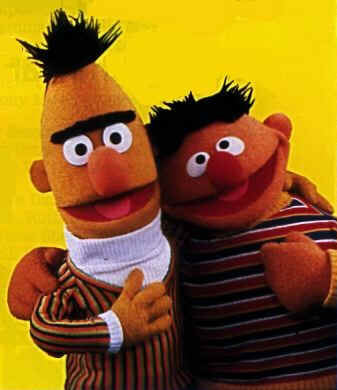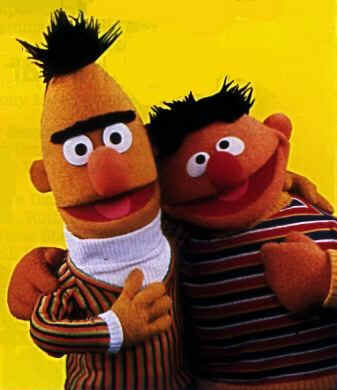To read on Huffington Post click here.
In the 70s my mom went from being an immigrant housewife stay-at-home mom to a bra-burning consciousness-raising feminist to a card-carrying the same-sex loving lesbian. And she loved Phil Donahue. So from a young age I had a deep fondness and respect for Phil Donahue. He represented things we believed in our household. Progress, inclusion, valuing individuals over corporations, trying to get at the truth of what makes America a great place, and how we as average citizens can shape this country into a place where freedom, liberty, and the pursuit of happiness are not just ideals, but concrete building blocks to a better life for everyone, regardless of race, creed, color or how much money you have in the bank. So when I found out we were both appearing at the Erma Bombeck Writers Workshop I jumped on the chance to pick his brain.
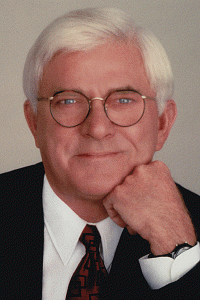 David Henry Sterry: You basically invented a type of television where the host asks questions about the emotional life of other human beings and it spawned everyone from Oprah to Jerry Springer, and I wondered what your thoughts were when you watch some of these shows and reflect on your part in this and how the whole thing has evolved?
David Henry Sterry: You basically invented a type of television where the host asks questions about the emotional life of other human beings and it spawned everyone from Oprah to Jerry Springer, and I wondered what your thoughts were when you watch some of these shows and reflect on your part in this and how the whole thing has evolved?
Phil Donahue: Well, I think I said this before that I love them all equally. They’re all my illegitimate children.
[We both laugh]
PD: It’s been fun watching the evolution. We didn’t know it then. We weren’t smart enough to know but very early on, we brought to the day-time schedule a revolutionary idea called democracy. We let the people who own the airwaves use them. I said many times there would’ve been no Donahue show without the studio audience. That was a happenstance; we inherited the audience of the show we replaced. They had tickets for the preceding show, so when they showed up to the studio that day in Dayton, Ohio, they found that the show they’d come to see had been canceled. And here I was with two talking heads, me and the guest. Everything else we were competing with was spinning wheels and “Come on down.” Monty Hall was giving away about a thousand dollars to a woman dressed like a chicken-salad sandwich. It was visual. It was exciting. People screamed and clapped. But our audience was so involved in the conversation and wanted to get in. I realized they were asking better questions than I was! During the commercial break during the third day, I jumped out of my chair and went out into the audience with a mic. We did put the audience up front and put the cameras behind the audience. That was new. Audiences were not that popular among the blue suits that ran the stations. In our case, we really highlighted the audience. Since we had a visually dull show anyway, just two talking heads, we suddenly realized we had something nobody else had. It was a very fundamental idea.
DHS: I feel like this was a precursor to the Internet, where everybody has a voice.
PD: Yeah, you could say that. Somebody who represented you sooner or later showed up in the audience and said what they thought, what you were thinking. It was a daytime show so usually a woman. We started our show in 1967, locally in Dayton, Ohio. Our first full year on the air Martin Luther King was assassinated, Bobby Kennedy was assassinated, the cops beat up the kids in Chicago, gays fought back at Stonewall. We really got very lucky and found ourselves riding the crest of the wave of the women’s movement, the civil rights movement, the gay rights movement. We put a live homosexual right here on my show in November, the first week of the show. In 1967, nobody was out.
DHS: Liberace was a huge star, women of all ages confessed to having a big crush on him.
PD: Absolutely, Liberace was in the closet. Of course, all the mothers thought their kids would catch it if they watched it. It was November 1967, and I had never seen such moral courage in my life. Here is this guy—live. “Yes, I am gay, and it’s none of your business. We are people, too. We have every right anybody else has.” I was scared to death. I thought everybody would think I was gay and it would be the end of my career. We did it anyway because even back then we realized this was a civil rights issue.
Then there was the women’s movement…these women coming out and say, “Children in this culture get too much mother and not enough father.” I thought, “Jesus, they’re talking about me.”
We did Madelyn Murray, the atheist, and it made you think about the separation of church and state. Why? You don’t want somebody in the Oval Office who talks to Jesus everyday and Jesus talks back. You know? The framers were correct on the separation of church and state. We have more churches, synagogues, mosques, temples; we throw more holy water and burn more holy smoke than any nation in the history of civilization. It is because of the separation of church and state. People miss that. Having been raised Catholic and a graduate of Notre Dame, it really opened my eyes. It made me appreciate other faiths and that they were just as sincere as mine was. Then, suddenly, you begin to see the sins of these institutions, and how the Christian church, especially, promoted all of them–it promoted homophobia. “The church does not approve of gays, then I sure don’t.” It made it easier to beat them up. You realize the church may be the number one promoter of homophobia on Earth. It’s also the institution that has the largest closet. All these ironies come crashing down on my head and the viewers and our audience.
DHS: You were one of the first shows that featured writers prominently. What did you observe that writers did successfully?
PD: Obviously we wouldn’t put you on the show if we didn’t think the book you wrote was compelling and of interest to the people who were watching the show, especially women. So, first, you know, write a great book that lots of people want to read. And you have to know your audience, be in touch with your audience. We got pretty good at a knowing what would be compelling. Our audience was mostly women, so I felt we should practice what we preached, and I hired women. They brought a lot of insight about the audience that you couldn’t really expect from a man, especially in 1967. Many times if I balked at an idea it turned out to be fabulous. I knew I didn’t have all the answers, and I was often wrong. The women I hired knew stuff I didn’t know. They had insight I did not have. I went to an all-male institution—high school and at Notre Dame. I came from an all-male world, from a house presided over by a mother who stayed at home, a father who got up and went to work every morning, worked 9 to 9 during Christmas retail season. It was definitely a man’s world.
DHS: When you had an author as a guest, what characteristics make someone a good guest who is an author?
PD: There’s a certain visual dramatic necessity if you’re going to succeed on the air. You’ve got to look the part. You’ve got to be enthusiastic about the subject. The best guests were the ones you had trouble shutting up. The worst guests were the ones I’d ask a four-minute question and the guest would say ‘yes.’ Most of them were scared, and I would be too. The best, most exciting guests for me were the ones who had a fascinating story to tell and were politically inclined to say how they feel, to make statements without regard to being popular.
Nobody wants to make anybody mad, but some of the best shows we did featured people who made people mad. Muhammad Ali is an example of that. A woman in front row said, ‘Why are you always throwing your blackness at us.’ He said, ‘Why do you always throw your whiteness at me?’ She said, ‘I’m not throwing my whiteness.’ He said, ‘Take that white Jesus off the wall. You made Tarzan white. You made angel food cake white and devil’s food cake black. I know plenty of black women who are prettier than your Miss America.’ I’d never seen a man who’s so thoroughly skilled and filled with insight. I stood there really awed at what he’d done for a billion young black males all over the world. You don’t have to take it. Inspire people.
Not that many years later, I actually went to Muhammad Ali’s ranch. He owns the ranch owned by Al Capone, that’s what I hear anyway. I drive in, and I park in a little parking spot in a little parking lot. There’s a little sign that says, ‘GOAT.’ G-O-A-T. What the hell’s that? I’m walking in the front door and I realize it’s, ‘Oh, Greatest of All Time.’ I knock on the door, walk in and he gives me a big hug and kiss on the cheek. What a thrill that was! So he says he had a teacher told him, ‘You’re never going to amount to anything.’ He goes to the Olympics and wins the gold medal. He comes back and he walks into her classroom and dangles the medal in front of her. He said, ‘You said I wasn’t going to be nothing.’ He tells me that as a child that was the thing that changed him. An insult. He went to the Louisville armory as a teenager to see Gorgeous George. Gorgeous George walks out in a red mink coat with white lining fur and yellow hair, and he says, ‘Don’t you touch my pretty face.’ The boos erupt all over the arena. ‘Don’t you touch my pretty hair.’ More boos. He said he looked around and there wasn’t an empty seat. And he realized: that’s how he learned to sell tickets. What insight this teenager had, and then for him to move on and evolve into the Greatest of All Time, which, honest to god, I don’t believe is an overstatement. I think he was the athlete of the 20th century, and I think he should’ve won the Nobel Peace Prize. ‘I ain’t got nothing against no Viet Cong. No Viet Cong ever called me nigger.’ He was pilloried for this. He lost his championship status. Talk about moral courage, he was a rock.
DHS: Let’s talk about Erma Bombeck. I hear you have a long and fascinating with Erma Bombeck, who I consider one of the greatest comedy writers America has ever produced.
PD: She was extremely gifted. In the list of the top ten best-selling books of the 1970s, Erma had two. It is true we lived across the street from each other on Cushwa Drive in Centerville, Ohio. This was one of the first cookie-cutter, suburban community. All the houses were the same: detached, same floor plan, no basement, three bedrooms. Diagonally across the street were the Bombecks. We both belonged to the same church. I was doing the radio program (this was before November 1967), and I worked for the news department of WHIO, the TV and radio.
Erma wrote an op-ed for the Dayton Journal Herald. The executive editor of the Journal Herald recognized her talent. He gave her a job writing her own column. So she comes across the street to interview me for her column. I was doing much of what we began the Donahue Show with: feminist issues, what our children are seeing, daddy goes off to work with a briefcase and mommy does to the basement to do wash and what is this doing to our kids. We’d do shows like that. Obviously Erma had tuned in. ‘Hey neighbor, I’ll do a piece.’ I’d never been this excited in my life. No one ever wanted to interview me. It was very flattering. At that point it meant so much to me.
DHS: I’m curious, why do you think America took to Erma Bombeck? What about her captivated people, besides her obvious talent, in terms of her message?
PD: I eulogized Erma in 1996. It wasn’t just that she was the best; she was the only. Erma was irreverent in many ways. Motherhood was sacred then. There was a lot of pretense. There still is. Motherhood was sacred. How blessed you are to have children. Erma came along and said, ‘Oy, I want to sell my kids.’ Erma said if a man watches three football games in a row, he should be declared legally dead. Erma said coat hangers breed. And she could also be very thoughtful. Her work was attached to millions of refrigerator doors around the English-speaking world. Erma could be very poignant. She could spot pretense across a crowded room. I remember once we were in St. Louis. Big crowd and little Erma is on the stage. You can hardly see her. They had like three balconies. There she was all by herself. I’m running around like mad with a wireless mic—the big time now. A woman in the balcony, way up, said, ‘Erma, I understand you were Phil Donahue’s neighbor. What’s Phil Donahue really like?’ And she said, ‘He peeks in windows.’ Of course the building falls down. Years later, after she moved, they had a beautiful home in Paradise Va ley, Arizona.. She’s walking us through the house, and this is on TV. There was a huge fountain in their home I said, ‘That’s a great fountain, Erma.’ She said, ‘Yeah, the grandchildren pee in it.’
One of the women who eulogized her said she was going to communion and Erma was in front of her. She turned around and said, ‘Be careful. You don’t know where his hands have been.’
She credited Phyllis Diller. That surprises some people, but Erma was very impressed by her. Phyllis Diller said radical, crazy things, like she’d stuff the turkey from the wrong end, and make fun of the wonderful privilege of being a housewife and raising kids.
No one was being irreverent then. Not only did she have that sense and that courage, it took a lot of nerve to obscure all the sanctity and pretense that accompanied discussions about motherhood and being a housewife. She had a brilliant comedy sense. Those two things together made her very unique, evidenced by her book sales. Two of the bestselling books in the 70’s. Her titles were brilliant: If Life Is a Bowl of Cherries, What Am I Doing in the Pits? When You Look Like Your Passport Photo, It’s Time To Go Home. Things like that made women scream. The wisdom and insight. She wrote a very honest but painful piece about women who’ve had catastrophically challenged children and how it would be so hard for her to not be bitter, angry, not to say ‘why me.’ Her syndicate asked if she was sure. Yes, I do, she insisted, and they published it. A woman called her, ‘I’ll never forget that, Erma. I had a child. I can’t lift her anymore. She can’t walk up the stairs. I want you to know your article spoke truth to me and I felt a little less guilty.’ There were another piece she did about being upset that the grass was tramped down and not growing as vigorously because the kids were rolling on it and running on it. She’d plant a little more seed, water it, and then the kids would roll on it and it would become barren. Pretty soon the kids went away to school and got married. She looked out the window and the place where the kids had played was green and the grass full and vigorous. She missed the bare spot where they were playing.
DHS: That’s beautiful.
PD: It made you cry.
Phil Donahue changed the face of daytime television, pioneering the audience-participation talk format as the host of the Donahue Show, a 29-year run which stands as the longest of its kind in U.S. television history. His TV journalism earned him 20 Emmy Awards — 9 as host and 11 for the show — as well as the George Foster Peabody Award; the President’s Award from the National Women’s Political Caucus; the Media Person of the Year Award from the Gay and Lesbian Alliance; and induction into the Academy of Television’s Hall of Fame. TV Guide named Donahue one of the Greatest Television Shows of All Time. Donahue has frequently been lauded for his groundbreaking interviews with world leaders and newsmakers — including Muhammad Ali, Johnny Carson, Ayn Rand, Nelson Mandela, Madalyn Murray O’Hair (his first Donahue guest), Margaret Meade and all of the presidents since Jimmy Carter. He was the first Western journalist to visit Chernobyl after the nuclear accident there. Donahue has also headlined numerous network and public television specials, including the Emmy Award-winning children’s special, Donahue and Kids, the landmark Ryan White Talks to Kids about AIDS and The Human Animal; an exploration of human behavior which was also a five part, prime time series that aired on the NBC television network. In 2006, Donahue co-produced and co-directed Body of War, a documentary film about a young Iraq War veteran left in a wheelchair by enemy gunfire who begins questioning America’s involvement in the war.
Universally hailed by critics (“almost unbearably moving,” wrote Time magazine), Body of War captured, among others, the Best Documentary award from the National Board of Review; the Grand Jury Prize at Michael Moore’s Traverse City Film Festival; and a People’s Choice Award at the Toronto Film Festival. Donahue is also an admired writer, whose opinion columns have appeared in The New York Times, The Washington Post and The Los Angeles Times. He is the author of the best-selling memoir, Donahue: My Own Story; and The Human Animal. A native of Cleveland and the father of five and grandfather of two, Donahue is married to award-winning actress, author and activist Marlo Thomas. They live in New York.
David Henry Sterry is the author of 16 books, a performer, muckraker, educator, activist, editor and book doctor. His anthology was featured on the front cover of the Sunday New York Times Book Review. His first memoir, Chicken, was an international bestseller and has been translated into 10 languages. He co-authored The Essential Guide to Getting Your Book Published with his current wife, and co-founded The Book Doctors , who have toured the country from Cape Cod to Rural Alaska, Hollywood to Brooklyn, Wichita to Washington helping writers. He is a finalist for the Henry Miller Award. He has appeared on National Public Radio, in the London Times, Playboy, the Washington Post and the Wall St. Journal. He loves any sport with balls, and his girls. www.davidhenrysterry

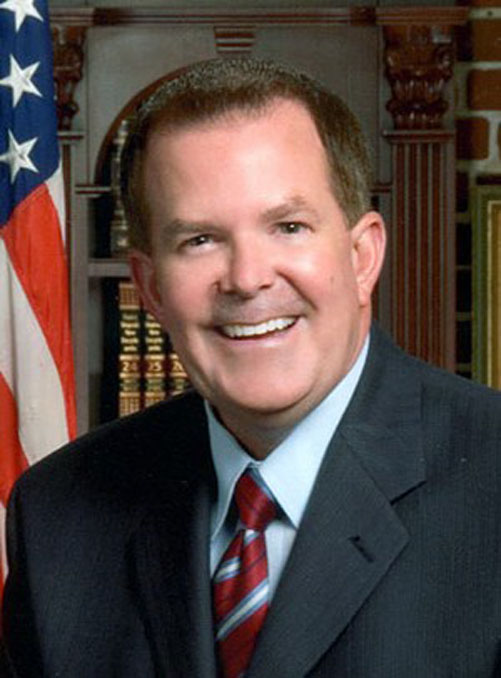
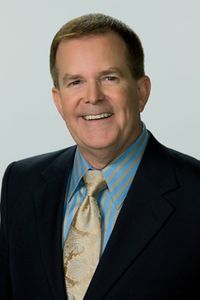 “I can’t help myself, I crave men meat, and I crave lots of it, all the time. But I’m a Christian, I love Jesus, I hate Satan, so I think queers, fags, dykes, and all other perverts are agents of the devil and should be destroyed. And as sweet baby Jesus is my witness, I’m real real real sorry.”
“I can’t help myself, I crave men meat, and I crave lots of it, all the time. But I’m a Christian, I love Jesus, I hate Satan, so I think queers, fags, dykes, and all other perverts are agents of the devil and should be destroyed. And as sweet baby Jesus is my witness, I’m real real real sorry.”